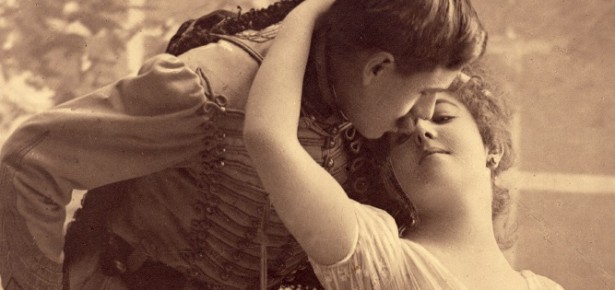
As a relatively inexperienced young man, I was travelling on a train from Paris to the South, my first visit to France. In the dining car, a young woman sat at the next table. We struck up an interesting conversation, in either French of English. I don’t remember which. After lunch, we moved towards our compartments. However, to carry on the conversation, we went to the same one, which was otherwise empty. Rather soon, I perceived that a mutual attraction had almost unconsciously brought our bodies closer together. Then suddenly it was as if two magnets had been switched on and our mouths were drawn together in a passionate kiss and hearts pounded. After about 10 minutes or so, much to my disappointment, I had suddenly to leave the train since I was being met at the next station.
Over the decades since then, I have retained a very powerful emotionally-loaded memory of this encounter and now I understand better what goes on in the brain under these conditions. Insight at a scientific level does nothing to detract from the subjective experience – I believe that the scientific insight can even enhance it. For at least some of us, if not most, our desire and arousal can be powerfully triggered by the exotic, novel and unexpected, while the forbidden, the transgression, enhances the lure and pleasure. My hunch is that, in the French train, the brain’s chemical messenger dopamine was suddenly released in large amounts as I moved from a situation of assessment of no erotic interest by the other individual to one of strong interest. The early experience was cemented in my memory.
My book brings the objective methods of traditional science and the personal subjective experience of sexual desire together. Its foundation is the belief that, only by studying both aspects in parallel, can we more fully understand sexual desire.
Early childhood gave few indications of the course my life would follow. I grew up in a loving but sheltered ‘Puritan’ environment, in which sex was never discussed except in terms of warnings as to its inherent dangers. University liberated me from this and the study of psychology brought the methods of science to bear on issues of great personal relevance. I researched motivation theory for my doctorate and later investigated sexual motivation and was able to gain some new insights into how it works.
I wrote this book in such a way that I hope both academics and lay people can gain insight from it. Sex is rarely out of the news for long. Marital breakdown, often triggered by lack of sexual interest, causes untold misery within families. There are the ubiquitous scandals of politicians and, tragically and disturbingly, in England at the moment sexual abuse of children occupies the media. My faith in writing the book is that a better understanding can only bring benefits to all.
The reading and scholarship needed for two particular chapters, those on sexual assault and lust killers were a disturbing experience and at times I regretted including this aspect. However, I believe that I was able to offer some insights into how sexual desire can take such an awful and aberrant direction. I can only hope that knowledge is empowering and that, by better understanding, we might help to avoid the developmental trajectories leading to a Ted Bundy or Jeffrey Dahmer.
Linked closely to the book’s narrative, I made a short film on the role of dopamine, which can be accessed here.
Latest Comments
Have your say!